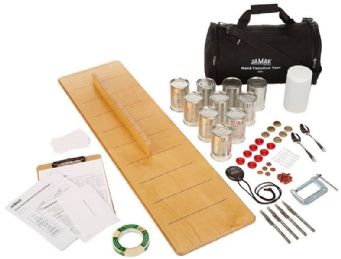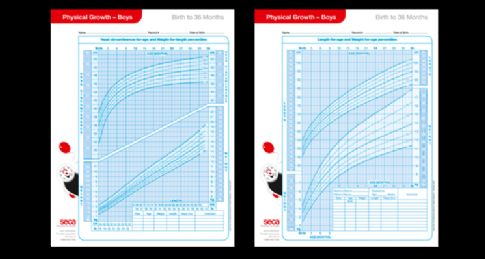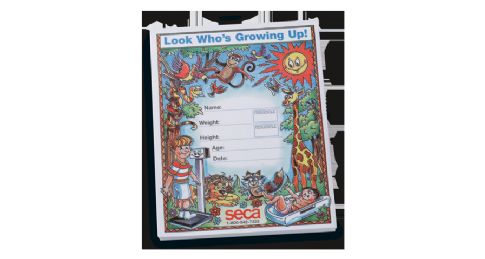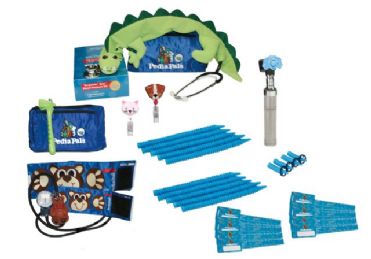
Assessment tests evaluate pediatrics as well as geriatrics for a variety of abilities. These abilities include cognitive skills, fine and gross motor development, behavioral abilities, and visual perception. Also available are exam room kits to help reduce anxiety for pediatrics, and growth charts for reference.




What are Cognitive Abilities?
Cognitive abilities are learned to different degrees as an individual grows and develops mentally. They are used to learn, understand, and integrate information in a meaningful way, unlike skills that are based on academic knowledge. Information which is learned cognitively is understood, not simply memorized. There are many cognitive skill groups and each category can be broken down into specific sets of skills and abilities. Milestones are often utilized to track an individual’s progress and can be employed diagnostically to check for learning disabilities or other problems that may require special attention.
Some examples of cognitive skills include motor skills, attention, memory, perception, and a wide category called executive skills. Each of these can be broken down further into specific mental operations that can be used to complete tasks or applied in different situations. Primarily, these abilities are utilized to perceive the world in a way that makes sense and is consistent, to solve problems, and to learn new skills and information. The executive functions are very important and can help to govern other skills and provide a mental framework that is critical to learning. They include problem solving, sequencing, inhibition, and flexibility. Some of these skills can support other categories and help to provide a means for integrating the information into the mind so it can be understood.
Some cognitive kits that are available include assessing the ability and learning potential for special needs kids ages 6 to 12. It is comprised of 22 sub-tests in 5 cognitive areas of spatial perception, orientation, praxis, thinking operations, and visuomotor construction, and for each sub-test there is a 5-step mediation structure. Another kit contains a variety of cognitive tests that help a therapist evaluate those with neurological deficits to gain a comprehensive profile. It is designed to work with those age 18 to 69 years old and contains 28 sub-tests in 7 cognitive areas. A variation to this kit is for those 70 years old and over and specifically addresses mental and physical factors that accompany that age group.
What is Sensory Stimulation?
The nervous system relies on sensory nerve endings to convey information about the surrounding environment to the motor neurons and the brain. Sensory stimulation produces a chemical reaction that converts to an electrochemical impulse, which then travels to the brain. The nervous system has several types of sensory receptors which are grouped by the type of stimulus that activates the receptor. The skin contains receptors throughout, which detect pain, temperature, or pressure.
Some sensory kits offer a sensory stimulation and a basic cognitive rehabilitation program with over 90 sensory activities. These activities include visual, auditory, olfactory, tactile, and gustatory stimuli. A kit may include over 30 functional, safe materials to stimulate the senses along with communication cards, a manual, and treatment guidelines and goals. A hot and cold discrimination kit enables a therapist to assess temperature discrimination abilities with an accurate, simple, and quantifiable method. It contains probes for hot and cold temperatures and a thermometer.
What is Fine and Gross Motor Development?
Motor development is the ability to make particular body movements to achieve certain tasks as an individual grows and develops. Fine motor skills involve the ability to make small and tightly controlled muscle movements. These tasks can be quite challenging for those who have certain developmental disabilities or those recovering from brain injuries or strokes, such as writing, drawing, or using a keyboard. Gross motor skills involve the large muscles of the body so an individual can walk, run, sit up, and jump.
Some motor skill kits have sub-tests to reliably measure interrelated motor abilities, such as stationary, reflexes, locomotion, grasping, object manipulation, and visual-motor integration. They can determine an individual’s fine motor quotient, gross motor quotient, and total motor quotient. A hand-specific kit evaluates a wide range of everyday hand functions by using common items. A test of gross motor development helps identify children ages 0 to 3 through 10 to 11 who are greatly behind in gross motor skill development. It is made up of 6 skills in 2 sub-tests of locomotor and object control. The results can help develop instructional programs, monitor progress, evaluate treatment, and do further research in development.
What is Behavior Therapy?
Behavior therapy focuses on replacing unhealthy behaviors with healthier types for those with social skills deficit, attention deficit hyperactive disorder (ADHD), attention deficit disorder (ADD), obsessive-compulsive disorder (OCD), or other psychological conditions.
A performance evaluation kit can have two parts, with a behavior assessment intended to gauge how an individual may function in both social interactions and task-oriented settings. Through assessments of seven areas of social functioning via observation of five different social situations, it measures the level of social competency. It evaluates the performance of brain injured, psychiatric, geriatric, or developmentally disabled adults as well as children in special education or treatment settings. Another type of kit evaluates the strengths and difficulties in daily living activities among children with a variety of disorders, such as ADHD, developmental coordination disorder (DCD), and verbal and non-verbal learning disabilities. It is for children with a behavioral or chronological age of 5 to 8 years and focuses on drawing, writing, cutting, and food preparation.
What is Visual Perception?
Visual perception is one of the senses which enables the brain to intercept and interpret what the eyes see. Several different processes are involved in visual perception, some are physiological and others are psychological. Physiological processes are caused by the reaction of the eye to light which converts the light into signals that can be understood. Psychological processes allow the brain to make sense of the images it sees. Many things can interfere with visual perception, such as a problem in the brain which interferes with vision. In this case, the eye functions properly but the brain is unable to understand or interpret the signals sent by the eye.
A visual perception kit measures how well an individual’s visual perception functions with color identification, hand-eye coordination, shape and size discrimination, and understanding spatial relationships. It contains a pegboard with round pegs, a pegboard with square pegs, a graded pegboard, a manual with screening procedures, and post-test forms.
Rehabmart is pleased to carry a wide variety of professional assessment kits for pediatrics and geriatrics from experienced and credentialed vendors, which include Maddak, Patterson Medical, Pedia Pals, and Seca Scales.
Hulet Smith, OT
Rehabmart Co-Founder & CEO
lb